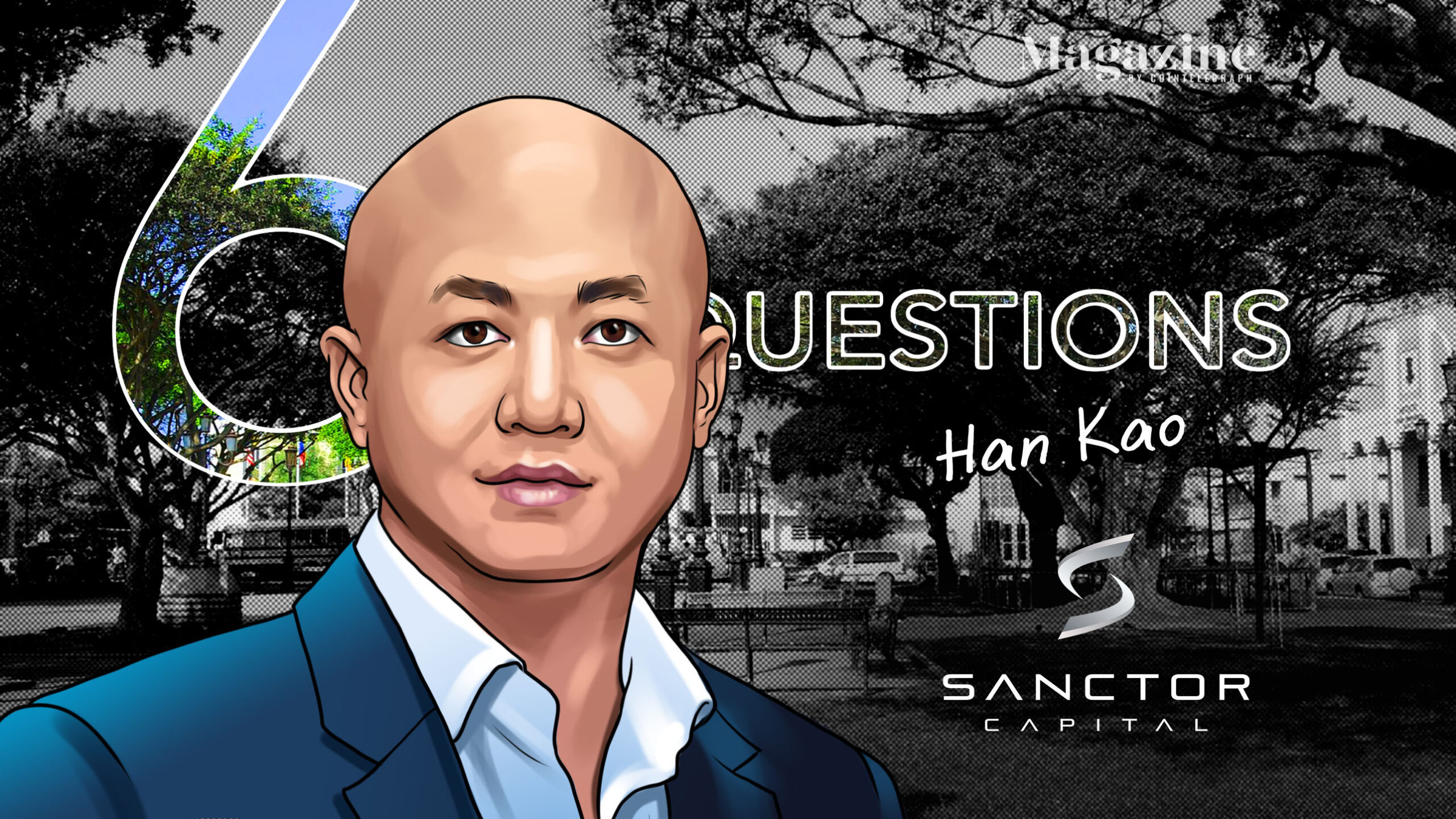We ask the buidlers in the blockchain and cryptocurrency sector for their thoughts on the industry… and we throw in a few random zingers to keep th

We ask the buidlers in the blockchain and cryptocurrency sector for their thoughts on the industry… and we throw in a few random zingers to keep them on their toes!
This week, our 6 Questions go to Han Kao, founder of thesis-driven investment fund Sanctor Capital and co-founder of crypto research company Crypto Briefing.
Han grew up in New York City and studied economics at Columbia University. He started as a software developer but soon realized he wanted to be an entrepreneur. Over the years, Han has founded several companies: a web development firm (ISI Studios) during the dot-com boom, events marketing (BDBG Marketing) and online ticketing (theDreamVine) companies from 2005 to 2015, and a mobile app studio (J Tech) in 2015.
In 2017, Han began publishing research on early-stage blockchain projects via Crypto Briefing. Today, Crypto Briefing is one of the top crypto research publications, with over 1 million monthly readers.
With Sanctor Capital, Han hopes to help guide other founders in the space to find their own success. It recently launched Sanctor Turbo, a Y Combinator-style mentorship program to support missionary founders.
1 — What does decentralization mean to you, and why is it important?
To me, decentralization represents a tectonic socioeconomic shift for the modern world. For centuries, the world has relied on centralized governments, financial institutions and other centralized organizations to imbue us with a false sense of security and safety.
However, it’s becoming abundantly clear that those same organizations and authorities that we have granted these such powers to are often not acting in the best interest of their constituents and are merely looking after their individual selves. Moreover, the costs that we pay for this false sense of security are inefficient and harmful to the societies that these organizations serve.
From a sociopolitical perspective, decentralization helps distribute and democratize power and empowers the active participants of any given society (or organization), rather than those who are more privileged.
From an economic point of view, decentralization helps remove the costs, inefficiencies and risks associated with needing to trust intermediaries and centralized parties.
Simply put, it just makes everything better — not necessarily easier, but better.
2 — What is the biggest obstacle facing Ethereum today, and what is its biggest opportunity?
Coined by Vitalik Buterin, the “blockchain trilemma” refers to the challenges and trade-offs that exist between the three main facets of a blockchain — decentralization, security and scalability. He notes that developers have to choose between trade-offs among the three facets.
While Ethereum is one of the most decentralized and secure blockchains that exist today, it is also one of the least scalable ones. The move to a more scalable, faster, cheaper Ethereum 2.0 has been, and will continue to be, one of the most complex and challenging developments of the Ethereum development community.
The goal post keeps moving for Ethereum 2.0, and developers are frustrated and are looking for alternative solutions. Developers today want to build applications on chains that can serve as the best foundation for the target use cases they have envisioned.
And the longer it takes for Ethereum to reach an acceptable level of scalability, the more opportunities arise for other blockchains to stake their claims on the market. We have already seen other blockchains such as Solana and Binance Smart Chain capitalize on this opportunity. and we will likely continue to see more momentum grow for other ecosystems like Cosmos, Polkadot, Avalanche and Algorand.
3 — Which is sillier: $500,000 Bitcoin or $0 Bitcoin? Why?
Without a question, $0 Bitcoin is sillier. The U.S. dollar is probably the biggest scam in the history of the world. After the Second World War, 700 representatives from 44 nations got together (in Bretton Woods, New Hampshire) to figure out how to build a new global financial system. And since the United States had the largest reserve of gold, it pledged to fix the dollar to its gold reserve and make the dollar the international reserve currency for other countries.
However, by 1971 — after racking up a huge deficit — we began to run low on our gold reserves. So, President Nixon decided that the dollar would no longer be backed by gold. We have been off the gold standard since, and the U.S. dollar is backed by nothing other than the strength of our military. That sounds like a scam to me. But the problem is that there wasn’t really an alternative until recently.
It’s not really practical to carry around gold bars and coins when you want to buy something. You also can’t transfer a gold bar across the world to relatives. So, Bitcoin is a viable solution for people who want to store their wealth in an asset others might be willing to accept in the future. And the more people see Bitcoin as money, the bigger it…
cointelegraph.com
